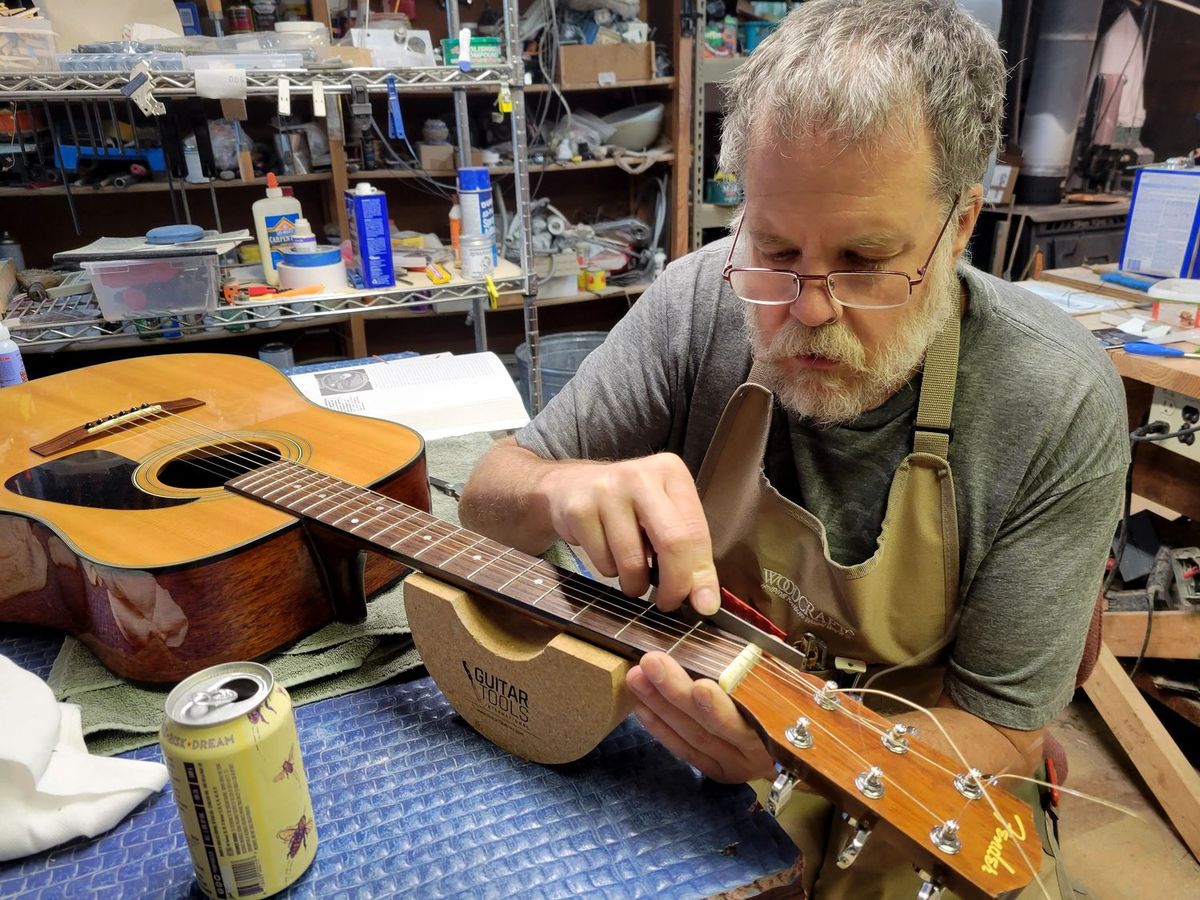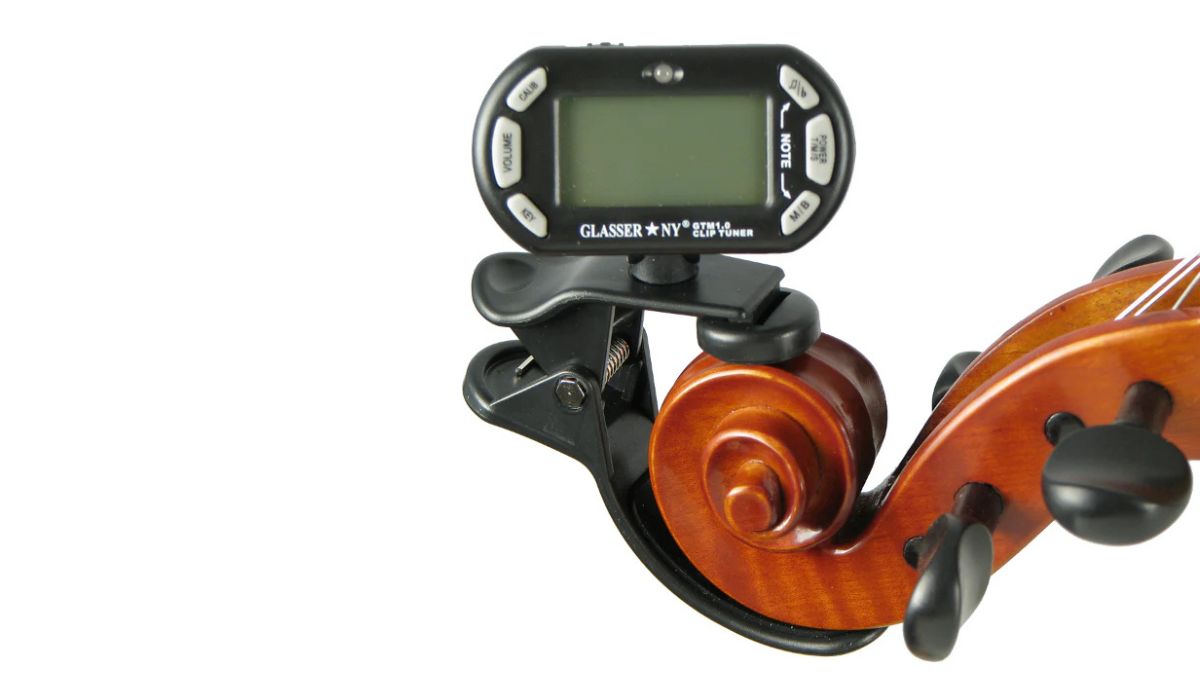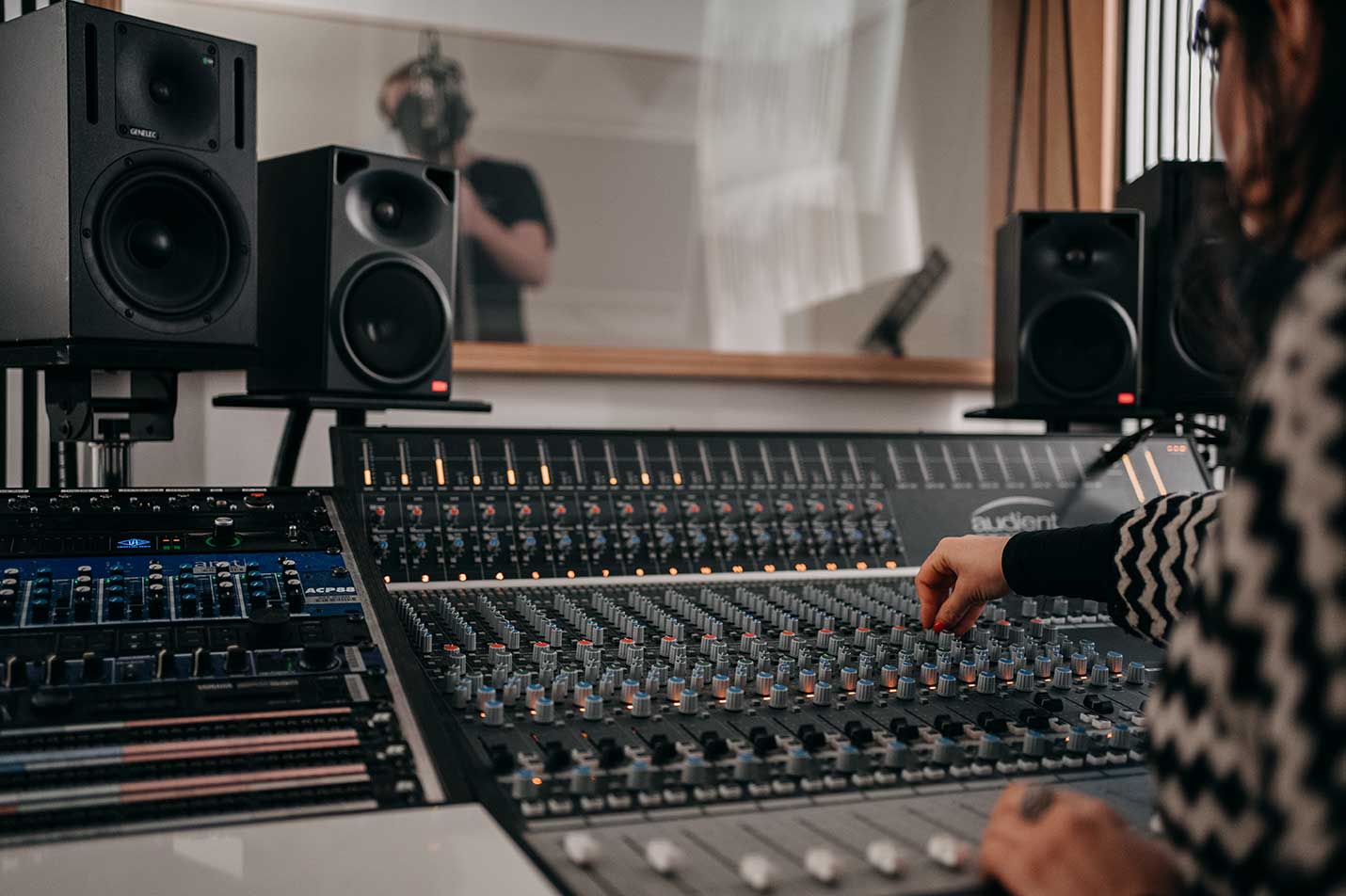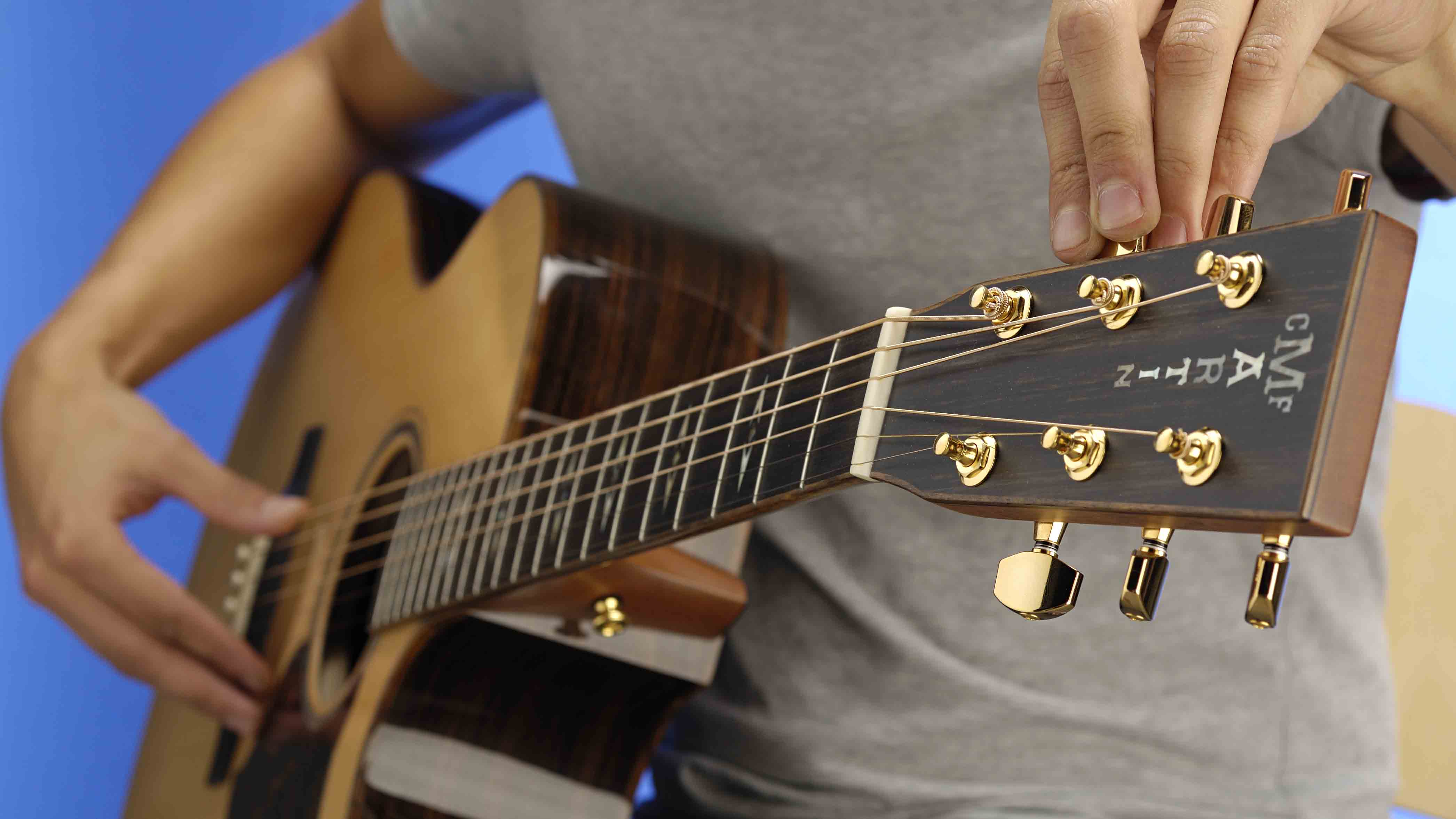Home>Instruments>Piano>How To Become A Piano Tuner


Piano
How To Become A Piano Tuner
Published: February 9, 2024
Learn the essential steps and skills needed to become a successful piano tuner. Discover the training and qualifications required to excel in this rewarding profession. Unlock your potential in the world of piano tuning today!
(Many of the links in this article redirect to a specific reviewed product. Your purchase of these products through affiliate links helps to generate commission for AudioLover.com, at no extra cost. Learn more)
Table of Contents
Introduction
Introduction
So, you've always been captivated by the mesmerizing melodies produced by the piano. The instrument's harmonious tunes have the power to evoke a myriad of emotions, from joy to nostalgia, and everything in between. As you've delved deeper into the world of pianos, you've come to realize the crucial role of piano tuning in producing such enchanting sounds. The meticulous process of tuning a piano is akin to unlocking its true potential, ensuring that each note resonates with unparalleled clarity and richness. If you're passionate about pianos and possess a keen ear for music, embarking on the journey to become a piano tuner could be an immensely rewarding endeavor.
Becoming a proficient piano tuner requires dedication, patience, and a deep understanding of the instrument's intricacies. This comprehensive guide is designed to illuminate the path toward mastering the art of piano tuning, from acquiring fundamental skills to establishing a thriving business. Whether you aspire to delve into the world of piano tuning as a full-time profession or seek to hone it as a valuable skill, this guide will equip you with the essential knowledge and insights to set you on the right track.
Throughout this journey, you'll gain a profound appreciation for the craftsmanship and artistry that underpin the world of piano tuning. As you immerse yourself in this timeless craft, you'll discover the profound satisfaction that comes with breathing new life into aging pianos, transforming them into resplendent instruments capable of producing breathtaking melodies. So, let's embark on this enriching odyssey, where the harmonious convergence of passion and precision awaits you in the realm of piano tuning.
Understanding the Basics of Piano Tuning
Understanding the Basics of Piano Tuning
Before delving into the intricate art of piano tuning, it’s essential to grasp the fundamental principles that govern the process. At its core, piano tuning involves the meticulous adjustment of the instrument’s strings to ensure that they vibrate at the correct frequency, thereby producing harmonious and pitch-perfect tones. The tuning of a piano is typically carried out by altering the tension of the strings, a delicate procedure that demands precision and a discerning ear.
Central to the concept of piano tuning is the notion of temperament, which refers to the arrangement of intervals between the notes. Traditionally, pianos are tuned to equal temperament, a system that divides the octave into twelve equal semitones. This standardized tuning enables pianists to seamlessly modulate between different keys while maintaining harmonic balance.
As a piano tuner, you’ll become intimately acquainted with the intricacies of the instrument’s structure, including the keyboard, strings, and tuning pins. Understanding the physical components of a piano is pivotal in identifying potential issues that may affect its overall tonal quality. Furthermore, gaining proficiency in utilizing specialized tuning tools, such as tuning hammers and electronic tuners, will empower you to execute precise adjustments with finesse.
One of the most fascinating aspects of piano tuning is the interplay between the instrument’s various components, each contributing to the creation of its distinctive timbre. The resonance of the soundboard, the elasticity of the strings, and the responsiveness of the keys all converge to yield the enchanting symphony that emanates from a well-tuned piano.
Embarking on the journey to master piano tuning entails embracing the marriage of technical expertise and artistic sensibility. It’s a harmonious fusion of science and art, where the pursuit of sonic perfection intertwines with a profound appreciation for the melodic tapestry woven by the piano. As you delve deeper into the nuances of piano tuning, you’ll uncover a world brimming with intricacies and marvels, each resonating with the symphonic allure of this timeless instrument.
Acquiring the Necessary Skills and Training
Acquiring the Necessary Skills and Training
Becoming a proficient piano tuner necessitates a blend of technical acumen, auditory discernment, and hands-on training. While a formal education in piano technology or instrument repair can provide a solid foundation, many aspiring piano tuners embark on their journey through apprenticeships and specialized training programs.
Developing a keen ear for pitch and harmony is paramount for a piano tuner. This entails honing your ability to detect subtle variations in tone and identifying dissonance within the instrument. Engaging in ear training exercises and immersing oneself in diverse musical compositions can significantly enhance this auditory acuity, enabling you to perceive the nuances of sound with remarkable clarity.
Acquiring practical experience under the guidance of seasoned piano tuners is invaluable in refining your tuning prowess. Apprenticeships offer a hands-on learning environment where you can observe and partake in the intricacies of piano tuning, gaining insights that transcend the confines of theoretical knowledge. Additionally, seeking mentorship from established professionals can provide invaluable mentorship, offering guidance as you navigate the complexities of piano tuning.
Formal training programs, offered by technical schools or vocational institutions, can also equip you with comprehensive knowledge of piano tuning techniques, piano construction, and the maintenance of tuning equipment. These programs often combine theoretical instruction with practical workshops, empowering aspiring piano tuners to develop a holistic understanding of the craft.
Embracing the digital landscape, online courses and tutorials have emerged as accessible avenues for acquiring foundational skills in piano tuning. These resources often encompass interactive modules and instructional videos, allowing learners to familiarize themselves with tuning procedures and techniques at their own pace.
Cultivating a deep appreciation for the history and evolution of pianos, as well as staying abreast of advancements in piano technology, further enriches your journey as a piano tuner. By immersing yourself in the rich tapestry of piano craftsmanship and innovation, you’ll glean insights that elevate your proficiency and deepen your connection to the timeless art of piano tuning.
Building a Clientele and Establishing Your Business
Building a Clientele and Establishing Your Business
As you venture into the realm of piano tuning, cultivating a robust clientele and establishing a thriving business are pivotal steps towards realizing your aspirations. Building a reputable brand as a piano tuner entails a strategic blend of networking, exemplary service, and a deep understanding of your target audience.
Networking within musical communities, including music schools, conservatories, and performance venues, can provide invaluable opportunities to connect with pianists, instructors, and piano enthusiasts. Attending musical events, workshops, and industry gatherings offers a platform to showcase your expertise and forge meaningful connections within the musical fraternity.
Embracing the digital landscape, establishing a professional website and leveraging social media platforms can amplify your visibility and reach. A well-crafted online presence, coupled with engaging content that highlights your expertise and passion for piano tuning, can resonate with potential clients seeking reliable and skilled tuners for their prized instruments.
Delivering exceptional service and prioritizing customer satisfaction are cornerstones of fostering enduring client relationships. By meticulously tending to the tuning needs of each piano and demonstrating a steadfast commitment to excellence, you can cultivate a loyal clientele base that reveres your proficiency and reliability.
Embracing the ethos of continuous improvement, seeking feedback from clients and leveraging testimonials can bolster your credibility and instill confidence in prospective clients. Satisfied clients often serve as ambassadors for your business, espousing the quality of your services to their peers and acquaintances.
Establishing transparent and fair pricing models, coupled with clear communication regarding the scope of your services, engenders trust and transparency. By articulating the value of professional piano tuning and the transformative impact it has on the instrument’s tonal quality, you can underscore the significance of your role as a piano tuner.
Expanding your repertoire of services to encompass piano maintenance, repairs, and restoration can further augment your business’s appeal and utility. Diversifying your offerings positions you as a comprehensive resource for piano care, catering to the multifaceted needs of piano owners and aficionados.
By infusing your business with a blend of expertise, integrity, and a genuine passion for pianos, you can carve a niche as a trusted and revered piano tuner, enriching the musical landscape with the resplendent harmonies of impeccably tuned pianos.
Tools and Equipment Needed for Piano Tuning
Tools and Equipment Needed for Piano Tuning
Embarking on the journey to become a proficient piano tuner necessitates the acquisition of specialized tools and equipment that are indispensable for executing precise tuning adjustments. These meticulously crafted instruments, tailored to the nuances of piano tuning, empower tuners to fine-tune the instrument’s strings with unparalleled accuracy and finesse.
1. Tuning Lever (Tuning Hammer): The tuning lever, commonly known as the tuning hammer, is a fundamental tool that enables piano tuners to adjust the tension of the instrument’s strings. Equipped with a head designed to fit the tuning pins, the tuning lever allows tuners to meticulously alter the pitch of each string, ensuring harmonious resonance across the entire keyboard.
2. Mutes: Mutes are essential for isolating specific strings within the piano, enabling tuners to focus on individual strings without interference from adjacent ones. These mutes are strategically positioned to silence unwanted vibrations, facilitating precise adjustments during the tuning process.
3. Electronic Tuner: Electronic tuners serve as invaluable aids for verifying the accuracy of the pitch during tuning. These devices utilize advanced technology to analyze the frequency of each note, providing real-time feedback to ensure that the strings are tuned to the desired pitch with utmost precision.
4. String Spreader: The string spreader is utilized to separate and align the piano’s strings, facilitating unhindered access to the tuning pins. This tool streamlines the tuning process, allowing tuners to navigate the intricate arrangement of strings with ease and efficiency.
5. Voicing Tools: Voicing tools, including needles and lacquers, are employed to refine the tonal quality of the piano’s hammers and dampen unwanted overtones. By meticulously sculpting the hammers and regulating their resilience, tuners can enhance the instrument’s timbre and ensure a balanced, resonant sound.
6. Calibration Kit: Calibration kits encompassing tuning forks or electronic calibration devices are crucial for ensuring that the piano is tuned to the standard pitch reference. These tools serve as benchmarks for achieving precise tuning across the keyboard, aligning the instrument with the universal standard of pitch.
Equipping oneself with these indispensable tools, coupled with a steadfast commitment to precision and artistry, empowers piano tuners to embark on a transformative journey of harmonizing the melodic tapestry of pianos. As these tools become extensions of the tuner’s expertise and passion, they lay the foundation for unlocking the full sonic potential of each piano, imbuing the world with the resplendent symphonies that emanate from exquisitely tuned instruments.
Maintaining and growing a piano tuning business entails a strategic blend of nurturing existing client relationships, expanding service offerings, and leveraging digital platforms to amplify visibility and reach.
Maintaining and Growing Your Piano Tuning Business
Sustaining the success of a piano tuning business hinges on fostering enduring client relationships through consistent, exemplary service. Prioritizing regular communication with clients and scheduling routine tuning sessions fosters a sense of reliability and ensures that the pianos under your care consistently emanate harmonious melodies. Additionally, offering loyalty incentives and personalized service packages can further fortify the bond with your clientele, fostering a sense of appreciation and loyalty.
Expanding your service repertoire to encompass piano maintenance, repairs, and restoration can position your business as a comprehensive resource for piano care. Diversifying your offerings not only caters to the multifaceted needs of piano owners but also amplifies your business's utility, paving the way for sustained growth and enhanced client engagement.
Embracing the digital landscape and harnessing the power of online platforms can exponentially augment your business's visibility and reach. Establishing a professional website that showcases your expertise, service offerings, and client testimonials serves as a compelling digital storefront, captivating potential clients and instilling confidence in your proficiency as a piano tuner. Leveraging social media channels to disseminate engaging content, such as tuning tips, piano care insights, and captivating musical anecdotes, cultivates an engaged online community while amplifying your brand's presence.
Embracing the ethos of continuous improvement and professional development is pivotal in nurturing the growth of your piano tuning business. Participating in industry events, workshops, and continuing education programs not only enhances your technical acumen but also fosters valuable connections within the musical fraternity. Additionally, seeking mentorship from seasoned professionals and engaging in knowledge-sharing initiatives can imbue your business with a spirit of innovation and excellence.
Harnessing the power of client testimonials and referrals can serve as a potent catalyst for business growth. Satisfied clients often serve as ambassadors for your business, espousing the quality of your services to their peers and acquaintances. By cultivating a reputation for unparalleled expertise and unwavering dedication to client satisfaction, you can organically expand your clientele base and fortify your business's standing within the musical community.
By infusing your business with a blend of expertise, integrity, and a genuine passion for pianos, you can cultivate a thriving enterprise that resonates with the resplendent harmonies of impeccably tuned pianos, enriching the musical landscape with the timeless allure of this majestic instrument.
Conclusion
Conclusion
Embarking on the odyssey to become a skilled piano tuner is a journey that intertwines technical precision, auditory acuity, and a profound reverence for the melodic marvels of the piano. As you delve into the intricacies of piano tuning, you’ll unravel a world brimming with artistry, craftsmanship, and the transformative power of harmonious resonance.
Mastering the art of piano tuning transcends the realm of technical proficiency; it embodies a harmonious fusion of passion, precision, and a deep understanding of the instrument’s inner workings. Each adjustment made to the piano’s strings is a testament to your dedication to unlocking its full sonic potential, ensuring that every note resounds with crystalline clarity and evocative richness.
As you cultivate your skills, immerse yourself in the rich tapestry of piano craftsmanship, and forge enduring connections within the musical community, you’ll witness the profound impact of your expertise on the pianos under your care. The symphonies that emanate from these exquisitely tuned instruments serve as a testament to your artistry, enriching the lives of musicians and enthusiasts with the timeless allure of impeccably tuned pianos.
In establishing and nurturing your piano tuning business, you’ll weave a narrative of excellence, reliability, and unwavering dedication to client satisfaction. Each harmonious resonance that emanates from the pianos you tune is a testament to the enduring legacy of your craft, enriching the musical landscape with the resplendent melodies that echo through the annals of time.
As you traverse this enriching path, remember that your journey as a piano tuner is imbued with the power to illuminate the world with the enchanting symphonies of exquisitely tuned pianos, enriching the lives of musicians and aficionados with the timeless allure of this majestic instrument. Embrace this journey with ardor, precision, and an unwavering commitment to the art of piano tuning, for within its harmonious tapestry lies the indelible imprint of your passion and expertise.











